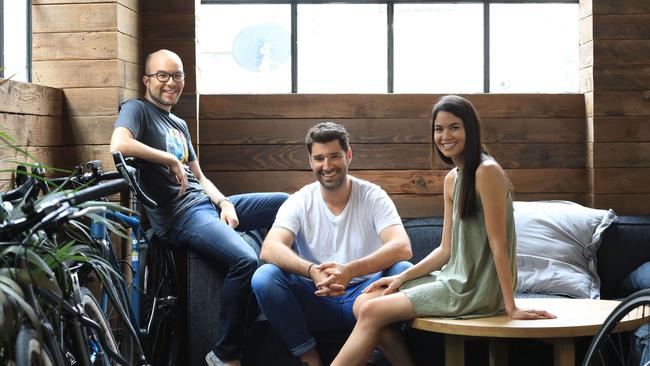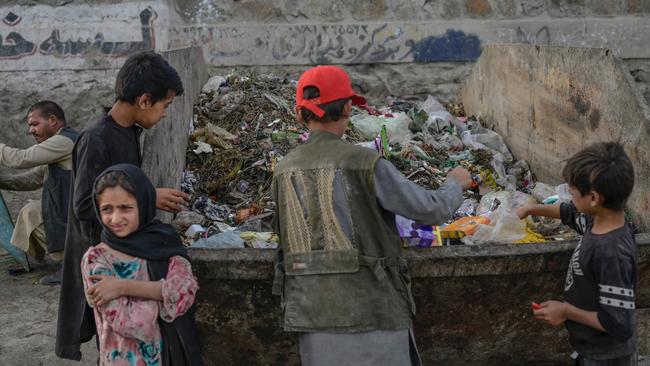Canva to donate $250,000, work with MSF to help Afghanistan aid effort
Tech founders partner with major charity for their first donation as they make good on a pledge to give away 30 per cent of Canva’s worth.

Canva, led by co-founders Cliff Obrecht and Melanie Perkins, will donate an initial $250,000 to provide relief for the humanitarian crisis in Afghanistan in which 24 million people – nearly the population of Australia – are on the brink of starvation.
Canva was most recently valued at $55bn, and Mr Obrecht and Ms Perkins have pledged to give away 30 per cent of the software company’s total valuation to charitable causes. Canva’s two step plan is “become one of the most valuable companies in the world”, then “do the most good we can”.
“The stuff in Afghanistan started coming up in the news, it’s really a growing humanitarian crisis,” Mr Obrecht said.
“People are starving, and in today’s day and age no one should go hungry. There is an abundance of food, and the thing that’s causing kids to go hungry and families to go without food is a supply chain or political issue.
“With the amount of wealth that exists in the world this should not be happening.
“We sort of felt obliged to lend a hand and help in any way we can, because we just didn’t want to stand on the side watching a humanitarian crisis unfold, we felt compelled to be part of helping with the solution.”
The withdrawal of foreign aid to Afghanistan had resulted in a food crisis, an economic crisis, and the collapse of critical services, Mr Obrecht said.
The executive said that $21 can feed a malnourished child for a week, $77 can cover emergency support for three months and $300 can help a team deliver an at-risk baby.
His company is partnering with non-profits including Médecins Sans Frontieres Australia and UNHCR to deliver the aid.

“Tech workers are some of the most well paid in the world, like they probably spend more in four days of lattes than what it takes to save a life,” Mr Obrecht said.
“When you really connect the dots like that, hopefully it inspires people to donate whatever they can and actually have an impact as well.”
He said the Canva Foundation, which is on track to become Australia’s largest charitable foundation, now had full-time staff and was continuing to evolve every day.
“We’ve built a model that allows us to have long-term goals. What do we want to accomplish over the next 20 to 50 years? And what short-term goals can we accomplish over the next year or so, and how can our capital have the biggest impact?
“We’re constantly fleshing out our foundation’s guiding principles and methodologies.
“When you think about it from a dollars perspective it becomes really complex and challenging because Canva is currently worth $US40bn, growing incredibly fast, and it’s kind of like putting the cart before the horse if you just think of the dollars – that’s why we’re a goals focused company.”
Mr Obrecht said he hoped other tech companies in the local ecosystem would follow suit.
“We are grateful to Canva for their generosity,” said MSF Australia executive director Jennifer Tierney. “We also extend our heartfelt thanks to those individuals and organisations who pledge their support to Médecins Sans Frontières during the campaign period.
“This support comes at a time when the challenges in Afghanistan are compounding: health structures are under enormous pressure, staff and equipment are in short supply, Covid-19 cases continue to rise and many aid organisations have withdrawn their support. Médecins Sans Frontières is committed to remaining in the country, supporting our patients in Herat, Kandahar, Khost, Kunduz and Lashkar Gah.”






To join the conversation, please log in. Don't have an account? Register
Join the conversation, you are commenting as Logout